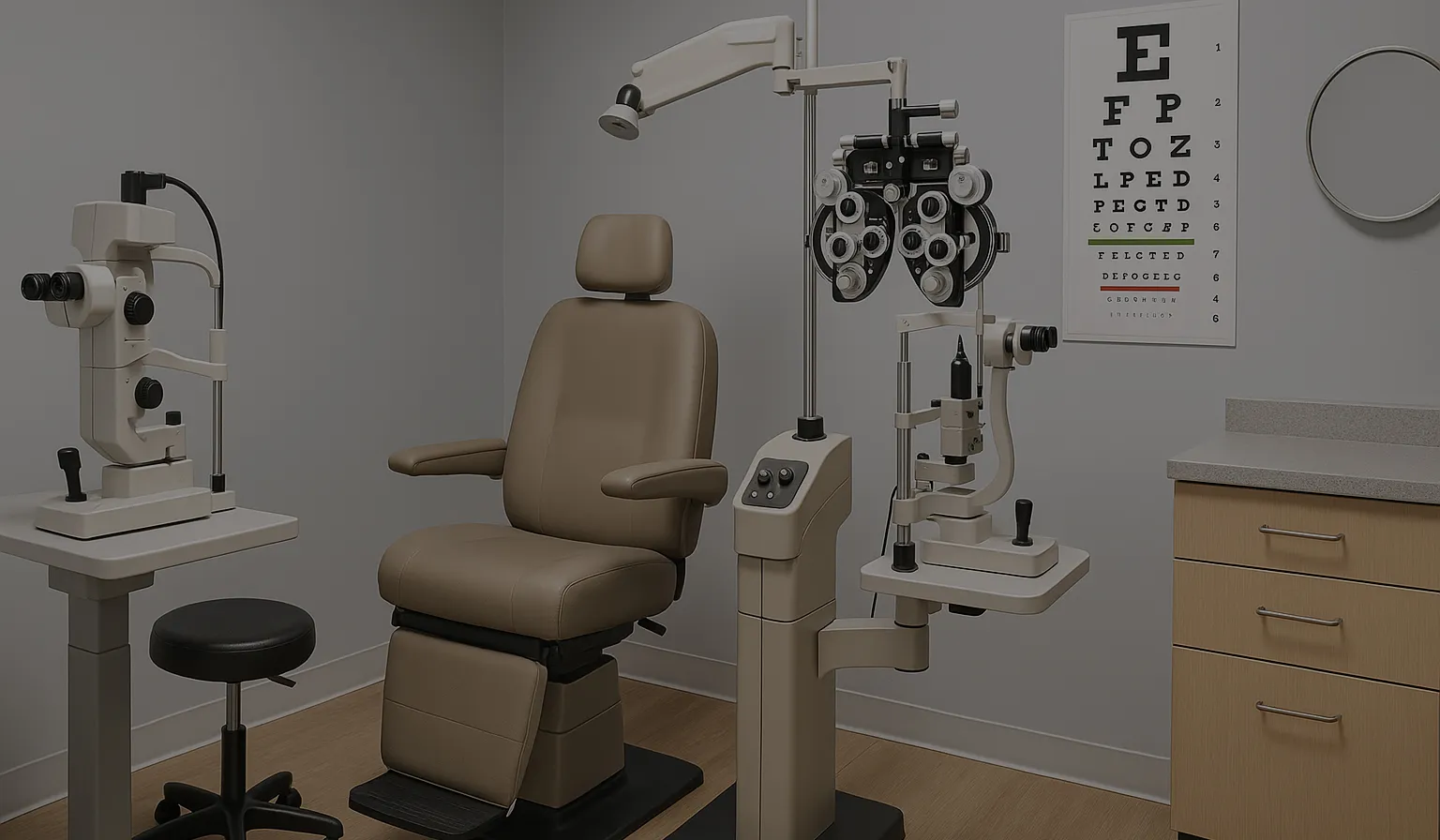As we age, our eyes change: the lens becomes stiff, so reading up close is tougher; fewer tears make eyes dry and irritated; the clear gel can shrink, causing harmless floaters or, at times, warning of bigger issues; cloudy cataracts blur colors and dim night vision; and the risks of glaucoma, macular degeneration, and diabetic eye disease rise, slowly harming sight before you even notice.
Small changes in sight can lead to big slips and falls or make driving risky. Early eye exams catch trouble when it is easiest to treat. A standard comprehensive exam measures visual sharpness, checks eye pressure, and lets the doctor look at the retina and optic nerve. Dilating drops widen the pupil so the doctor can spot tiny leaks from diabetic retinopathy or yellow deposits from macular degeneration long before vision fades.
If cataracts are forming, your provider can note their growth and suggest brighter lighting or, in time, surgery. For dry eyes, simple steps such as warm compresses or lubricating drops can bring relief. Early detection often turns a potential crisis into a manageable routine.

Original Medicare helps with medical eye issues, like glaucoma tests for those at higher risk, but it does not cover routine vision exams or glasses. Many Medicare Advantage plans step in to fill that gap. While benefits vary by plan, you will often find:
Some plans partner with national vision networks, making it easy to book an appointment near home. Remember to check that your preferred optometrist or ophthalmologist belongs to the plan’s network before scheduling.
Bring a list of medications, over-the-counter supplements, and any vision changes you have noticed, such as halos around lights or trouble reading labels. If you have diabetes or high blood pressure, share your most recent blood-sugar or BP readings. Let the staff know if a family member has glaucoma or macular degeneration; genetics can raise your risk.
Most dilated exams blur close vision for a few hours, so arrange a ride or wait before driving. Sunglasses help with light sensitivity after dilation.
Daily Habits That Protect Sight: Eat colorful produce, leafy greens, and orange vegetables, which supply lutein and beta-carotene, nutrients linked to retinal health. Stay active, regular walks improve blood flow to the optic nerve. Control chronic conditions, keep your blood sugar and pressure within target ranges to reduce eye vascular damage. Give screens a break, follow the 20-20-20 rule: every 20 minutes, look 20 feet away for 20 seconds. Wear UV-blocking sunglasses; ultraviolet light speeds cataract growth.
Sudden flashes of light, a curtain-like shadow, or a rapid spread of floaters can signal retinal detachment, a medical emergency. Sharp eye pain, redness, and nausea may point to acute glaucoma. Blurry central vision can be an early sign of macular degeneration. Quick treatment often saves sight, so do not wait for a routine check if these symptoms appear.
Turning 65 should not mean accepting fading vision as inevitable. Regular eye exams keep you reading grandkids’ drawings, navigating grocery aisles, and enjoying sunsets with clarity. Medicare Advantage plans often make those yearly visits affordable, pairing preventive care with coverage for glasses and lenses. Review your benefits, schedule your exam, and keep simple daily habits that protect your eyes for the years ahead. Clear sight is one of life’s greatest gifts. Take the steps now to keep it bright.